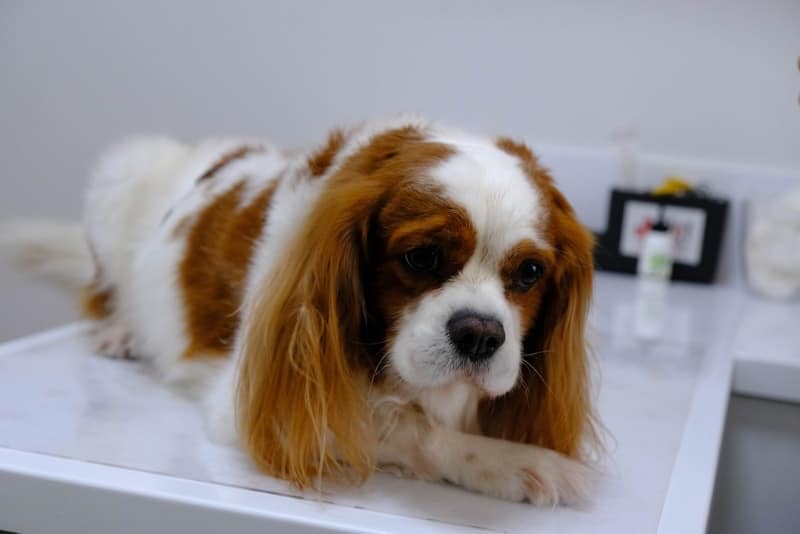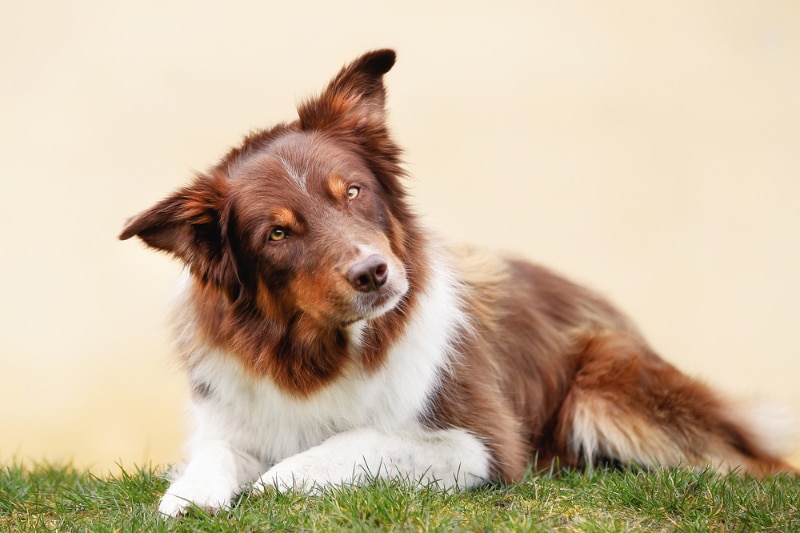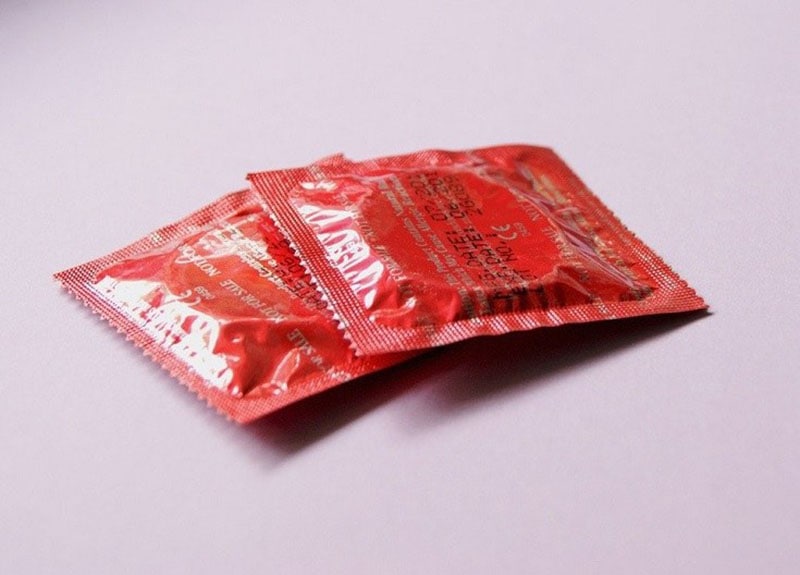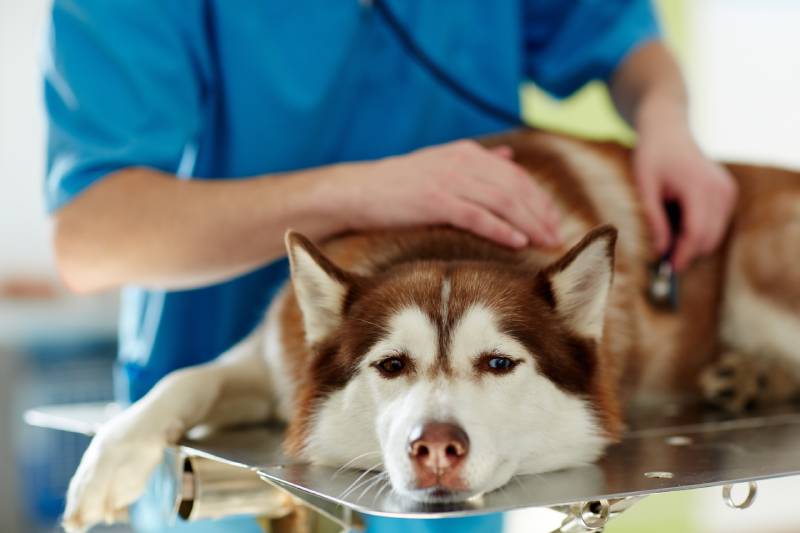Click to Skip Ahead
The vestibular system of the body is responsible for balance, helps with coordination, and prevents a dog from falling over. It does this by helping to adapt and respond to the body’s position by changing the position of the eyes, head, and body. Vestibular disease can be categorized into peripheral and central, and knowing the difference between these is extremely important for veterinarians. In practice, we will commonly see older dogs develop signs of peripheral vestibular disease. In this article we will discuss what peripheral vestibular disease is (as compared to central vestibular disease), what are the signs, what are the causes, and how you can care for your dog if they are suffering from this condition.

What Is Peripheral Vestibular Disease?
The vestibular system of the body is sensory and helps to control balance and coordination. The vestibular system consists of the inner ear, the vestibular nerve, and an area at the back of the brain. Together, this system works to convert information, or signal as to the position of the body, through the inner ear, vestibular nerve, and to the brainstem. The brainstem nuclei then process this signal and send information back to the rest of the body on how to adjust the eyes, head, neck and body so an animal does not fall and/or lose balance.
Vestibular disease can involve a lesion or break in the signal anywhere along the above pathway. Whether or not your dog has peripheral or central vestibular disease will be determined by your veterinarian. Typically, peripheral vestibular disease has little to no brainstem involvement. Again, determining this can be difficult, even for the most experienced veterinarian, and some dogs do not “follow the rules”, and will have signs consistent with both peripheral and central vestibular disease.
In general, if your veterinarian notices that your dog has an altered mentation, weakness, and proprioception deficits, or deficits of the cranial nerves V–XII, then this is more consistent with central vestibular disease than peripheral.

What Are the Signs of Peripheral Vestibular Disease?
The onset of vestibular disease will be noticeable, and both you and your veterinarian will appreciate a significant change in your dog. The signs can come on out of nowhere (begin acutely) and people often suspect their dog suffered a stroke.
- Head tilt to one side
- Nystagmus (irregular, jerking eye movements) – often in both eyes – typically peripheral disease will be associated with horizontal nystagmus, or the eyes moving side to side (versus up and down)
- Vomiting
- Drooling
- Difficulty walking/ataxia/loss of balance
- Gator rolling and/or falling to one side – often the side the head is tilted towards
Your veterinarian will perform a physical and neurologic exam to help determine if the signs are consistent with peripheral vestibular disease vs. central vestibular disease. As mentioned above, if your dog is having seizures, has an altered mentation, and is head pressing or weak, then these are often signs of central vestibular disease. However, it can be difficult as some dogs have signs that crossover both central and peripheral disease. This is why diagnostics are always recommended and important.
What Are the Causes of Peripheral Vestibular Disease?
Commonly we do not find a cause of peripheral vestibular disease. This is known as “idiopathic.” In veterinary medicine, it’s often referred to as “old dog vestibular disease”, because we will see it in older animals and never find a reason for it.
Other times a dog may have an inner and/or middle ear infection, have suffered a stroke, have a tumor, or even have ingested a toxin. Ear infections and idiopathic are the most common reasons we see peripheral disease, with cancers, infections, and other inflammatory conditions being more of a commonly seen cause of central vestibular disease.
Upon presentation, your veterinarian will likely complete a full physical exam including an otoscopic exam, which involves looking into the ear canal. They will make sure the ear drums appear intact and that there is no obvious infection or inflammation along the ear canals or associated with the ear drums. Bloodwork, radiographs, and blood pressure are often all completed to rule out other causes of the disease such as hypertension, which may lead to stroke events. Even with all of the diagnostics, as mentioned, a cause is often never found.
Depending on the age of your dog and their exact signs, your veterinarian may recommend advanced imaging such as an MRI or CT scan. These are the best imaging tools we have to look at the brain and associated structures, but they often have to be completed at a university or specialty hospital.

How Do I Care for a Dog with Peripheral Vestibular Disease?
As mentioned above, your veterinarian will want to perform bloodwork, a blood pressure check, and ear cytology. These will help determine if your dog has any other issues such as an ear infection, high blood pressure, kidney issues, etc. These will all need to be treated appropriately if found.
If your dog has idiopathic vestibular disease, and no other abnormalities are found, the biggest things to control are nausea and motion sickness. Your veterinarian may give an injection of anti-nausea medication in the hospital and send additional oral doses home with you. Depending on your dog’s signs, Meclizine is often prescribed as well. This is a medication used for motion sickness and can often be purchased OTC.
If your dog is having trouble getting up and around or is falling, you may want to use a sling or harness to help them. Your dog’s balance and ability to balance themselves may be off for a while, so it’s important that you help support them so they do not hurt themselves. Your veterinarian can best help you with options as a lot of the recommendations will depend on the size of your dog and how unbalanced they are.

Frequently Asked Questions (FAQ)
What If My Dog Gets Worse?
If your dog worsens – such as seizures, temperament changes, weight loss – then there is likely a serious underlying cause to their vestibular disease and it may actually be a central vestibular issue. Idiopathic disease will often improve over time, typically days to weeks. If there is an ear infection that is appropriately treated, your dog can make a full recovery. If your dog has an ear infection and is getting worse, follow-up for additional testing or different medications may be needed.
Can This Happen Again?
Yes. While we don’t commonly see a dog suffer multiple episodes, there’s nothing that says it can’t or won’t occur more than once in your dog’s lifetime. Especially if it’s from an ear infection, those can become chronic and be difficult to control.

Conclusion
The vestibular system of the body helps with coordination, balance, and knowing where the limbs are in space. In dogs, we can often see them develop peripheral vestibular disease. This is a type of disease of the vestibular system that does not commonly involve the brainstem. Peripheral vestibular disease often involves an inner or middle ear infection, or more commonly is idiopathic (no known cause). Your dog may suffer an acute onset of a head tilt, nausea, trouble walking and nystagmus. An exam and diagnostics will help your veterinarian to determine if your dog is suffering from central vestibular disease, which is much more serious. Your dog will be treated with anti-nausea medication, motion sickness medications, and ear meds if needed, and they will likely need assistance walking. Your dog can fully recover, though this depends on the underlying cause.
Featured Image Credit: BIGANDT.COM, Shutterstock










